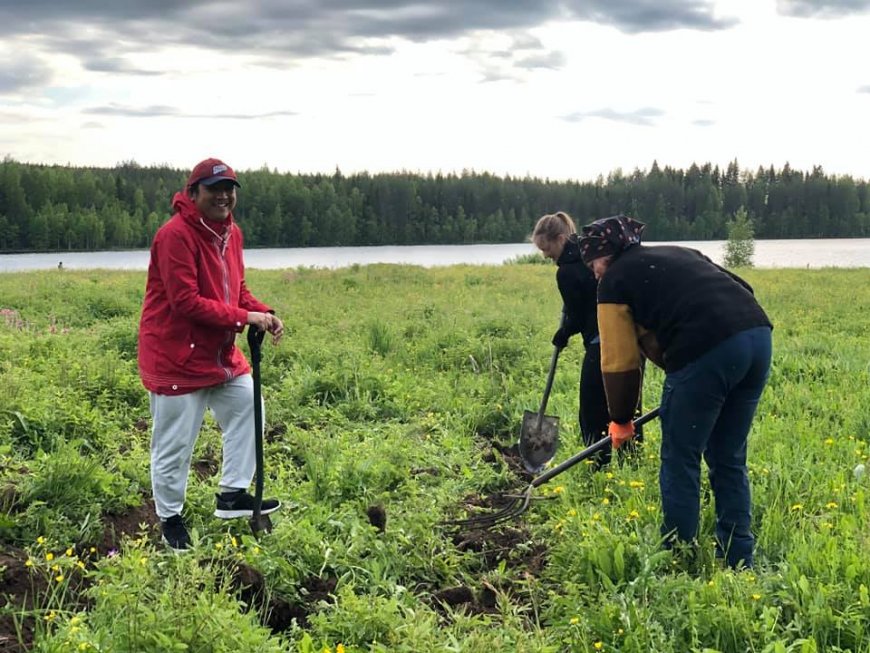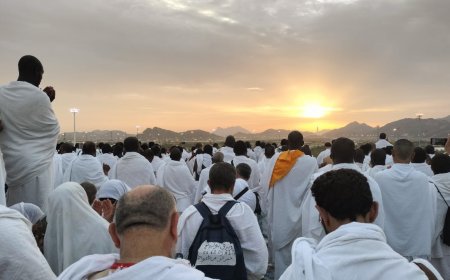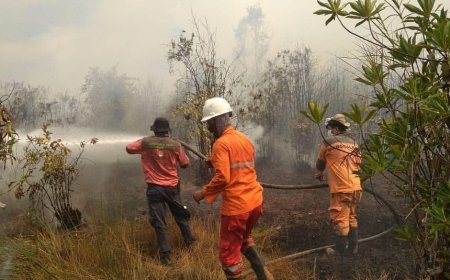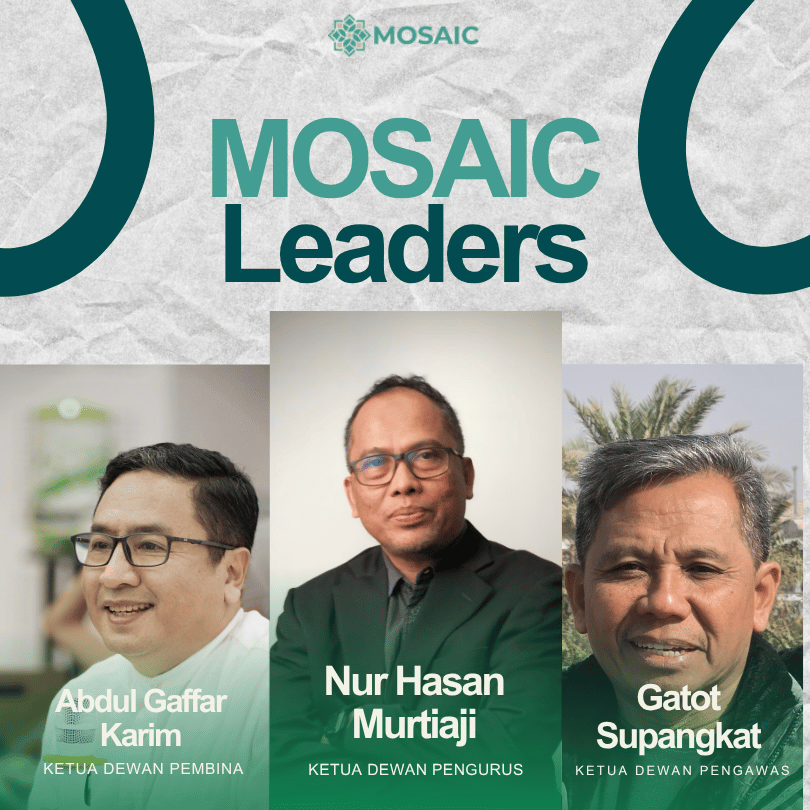Learning sustainability from the Finnish
Rijal explains that the life of Finns blends with nature.

MOSAIC-INDONESIA.COM, JAKARTA -- Like other Muhammadiyah intellectual youth, Rijal Ramdani has a strong desire to study abroad. UMY (Yogyakarta Muhammadiyah University) and UGM (Gadjah Mada University) graduates believe that his journey to study in order to reinterpret Islamic values compatible with the current situation. Moreover, his field study about environment policy expected to be able to answer the problems of climate change that the world community is facing today.
Fate took Rijal to the University of Eastern Finland, Finland. Through the study of Enviromental Policy, Rijal had to complete his doctoral program for five and a half years. During his stay in what is known as the happiest country in the world, Rijal, who graduated in December 2023 as a doctor with a satisfactory predicate, witnessed how the local community blends with nature. Their awareness and responsibility for the preservation of the environment is so high that they are called Responsible Citizens.
Rijal, who now serves as Director of the International Program of Government Affairs and Administration (IGOV) of UMY, explains how Finnish society behaves and interacts with nature. Consciously, they reduce daily activities that produce carbon footprints. “The Finnish paradigm is aptly described as Re sponsible Citizens,” he told MOSAIC's editorial team not long ago.

Rijal explains that the life of Finns blends with nature. Forests, rivers, and lakes are very well preserved. Inside the forest, there are merry chirping birds, squirrels and wild rabbits running around. The biodiversity of the forest is greatly preserved. Such is the case with rivers and lakes with the clarity of their waters.
They feel responsible and have the awareness to take care of nature. Rijal separates, if they fish in a lake or river, they only take for one meal as a family, nothing more. If they take too much, they feel the number of fish will decrease.
Their responsibility in caring for the forest is also very high. Rijal explained that the majority of forests in Finland are owned by families on a hereditary basis. One family could own tens or even hundreds of acres of forest land. “And the possession of such vast forests is commonplace. They adhere to a system of private property rights, not state property rights as in ours where our forests are all claimed to belong to the state,” he said.
They own forest which are not exploited. According to Rijal, most of the Finnish society actually have a commitment not to cut down their wood except for the need to warm saunas and home fireplaces in winter. They dedicated the forest to conservation, a place where bears, “moose” (big deer) and other animals reside.
So is their behaviour in reducing their carbon footprint. According to him, most Finns are on foot. Bicycles became the main means of transportation. “So the four-kilometre walk is commonplace, the usual nine-kilometre bike ride to shopping, the office, etc.,” he said.
According to Rijal, they can enjoy walking and cycling freely because the facilities are very good. Roads for them are separated by vehicles. Not only that, bike parking is also available on campus, in offices, and in public places that are always full of bicycles.
Another carbon footprint reduction is in energy efficiency. Almost all lights on campuses, offices, and public facilities in Finland work automatically. The lights will only come on when there are people. If not, then it will automatically turn off.
In addition, the use of plastic bags is very rare. According to Rijal, residents who want to shop have brought their own bags from home. Even if they are forced to use plastic, they will have to buy it at a high price.

For garbage management, residents began sorting garbage from homes. Objects such as plastic bottles and cans can be exchanged for money through a machine or get a shopping cut. Rijal also recorded their story through a book entitled “Learning from Life in Finland”. “The book is purely based on the results of my observations and experiences during interaction with the community,” he said.
Rijal said there are three justifications of Finnish society in relation to the preservation of nature: logical, empirical, and instinctive. The meaning of Logic is that the action or activity of life is based on considerations of reason, specifically cost and benefit or profit and loss. He explained that logic becomes the main moral justification. As an example, Finns do not throw garbage carelessly, let alone throw plastic waste in the forest. According to Rijal, their considerations are profit and loss. “If you throw garbage carelessly, our sense would say that the environment becomes dirty, it will become a burden on life and the environment, that is the loss,” he said.
The second justification is empirical. That is, they learn from a life that has been and is being experienced. Empiricism is a continuation of logic. He separated, if it was summer, Finns often celebrated mid-summer by making bonfires. Only, if the air temperature is high, such as above 26 ˚C, then the bonfire is dispensed with. They are worried about forest fires because they have experience from the past.
The third concept is the instinct or voice of the human heart which is universal in determining the right and wrong of an action. According to him, the voice of the human heart must contain goodness. Whispers not to throw garbage, not to catch birds and then put them in cages, and not to waste water gratuitously, come from the sound of the heart. Therefore, people and individuals in Finland have the awareness to consume nothing produced from and renewed by nature, use renewable energy, and use it as efficiently as possible.
Rijal also compares with Muslim society in Indonesia who form paradigms and behaviors with religious values. Although there are many religious justifications that should be the foundation of Muslims in preserving nature, these values only arrive in lectures through the verses of the Quran and the hadiths of the prophet. Justification is not yet a behavior and morality that is carried out over and over again and becomes everyday.
“So his homework is how the sacred values of religion can become behavior, can become morality. And it's one of them that the PP Environment Assembly continues to fight for. Muhammadiyah to embed religious values related to the preservation of nature in the daily life behavior of Muslims in Indonesia,” said Rijal, who is also the director of MLH PP Muhammadiyah.
Rijal is convinced that the concept of Responsible Citizens can be done for Muslims in Indonesia with the concept of Responsible Ummah. According to Rijal, the Responsible Ummah are Muslims who have a concern for nature and climate change by basing their concern on religious values.
He said, it is an agency whose form can be NGOs or religious ormas such as Muhammadiyah and NU. Ummah can also be media such as Republika up to Individual category.
Furthermore, Rijal exemplifies the practice of Responsible Ummah in Muhammadiyah. In MLH Muhammadiyah, he said, there is a section called ALIMM (Independent Environmental Audit of Muhammadiyah). The goal is to ensure that Muhammadiyah, Amal Usaha Muhammadiyah office buildings such as Muhammadiyah colleges, schools and hospitals are environmentally friendly.







